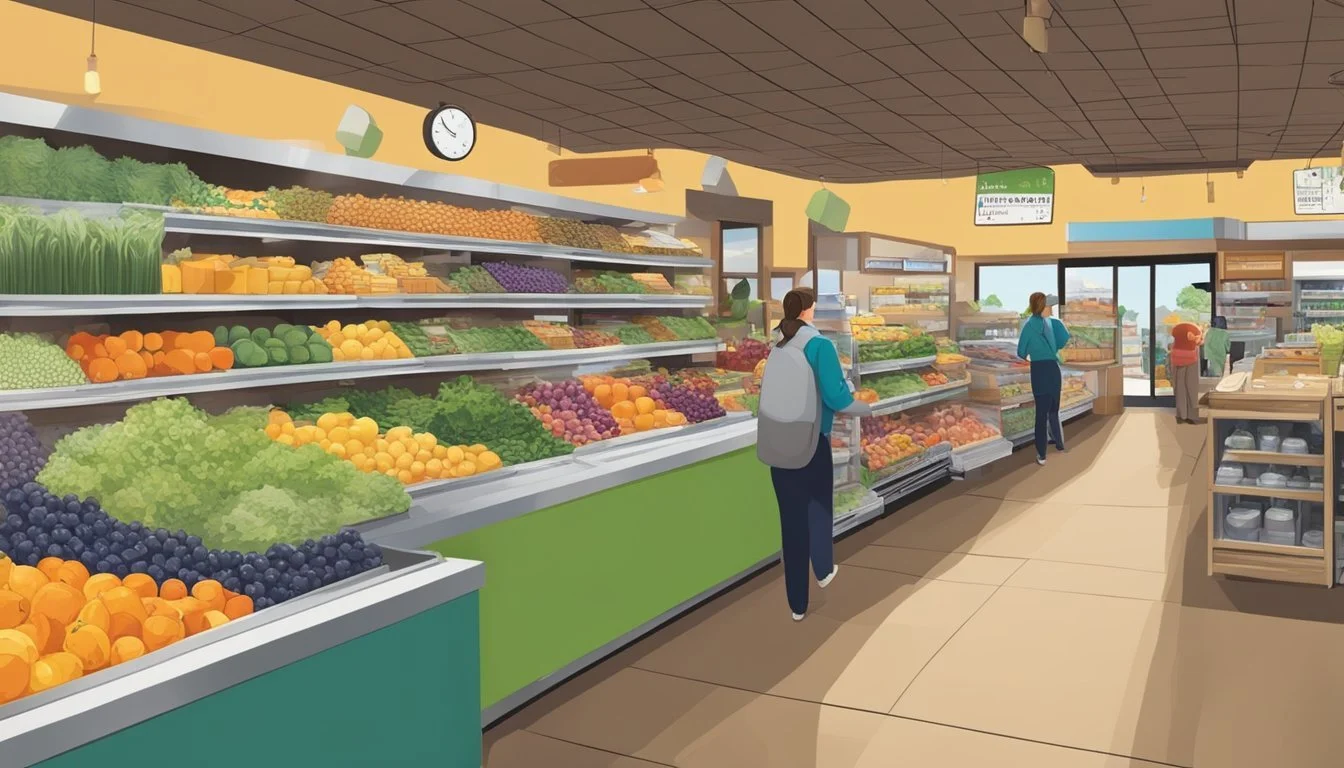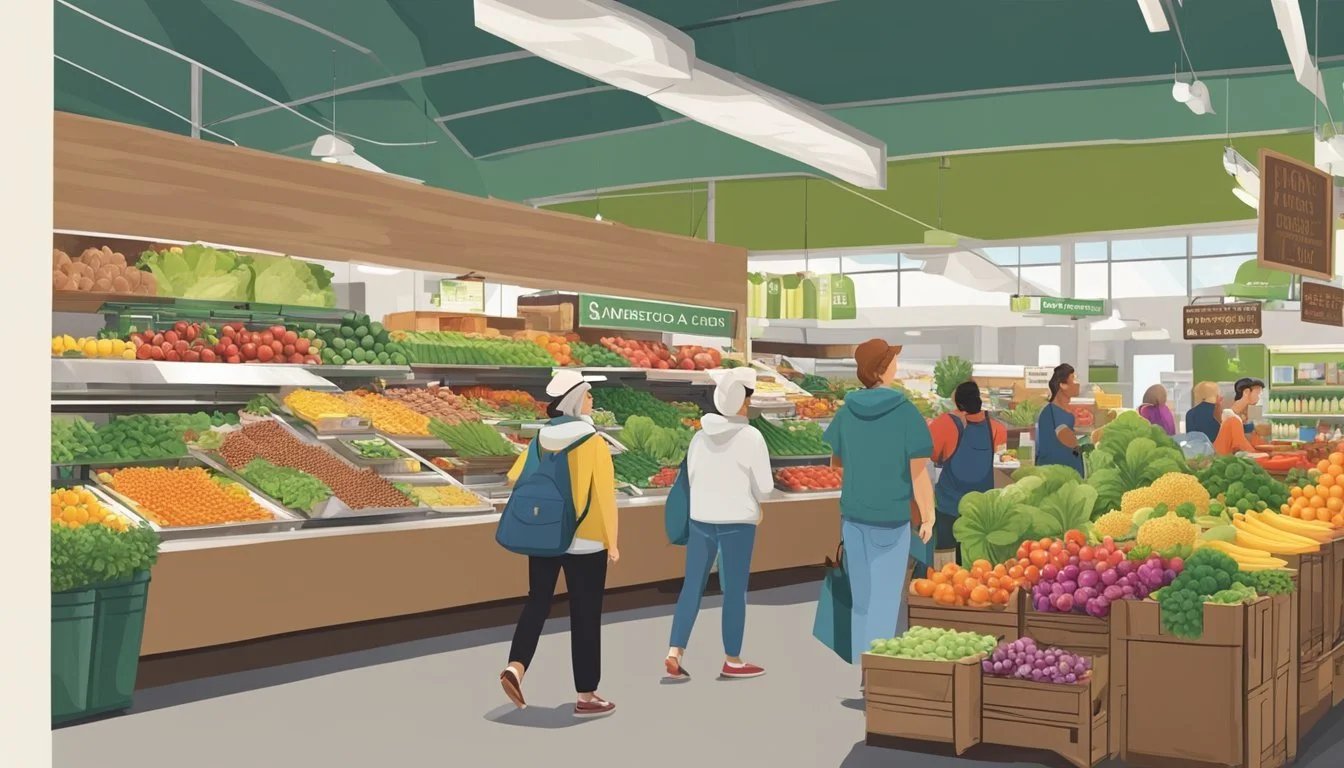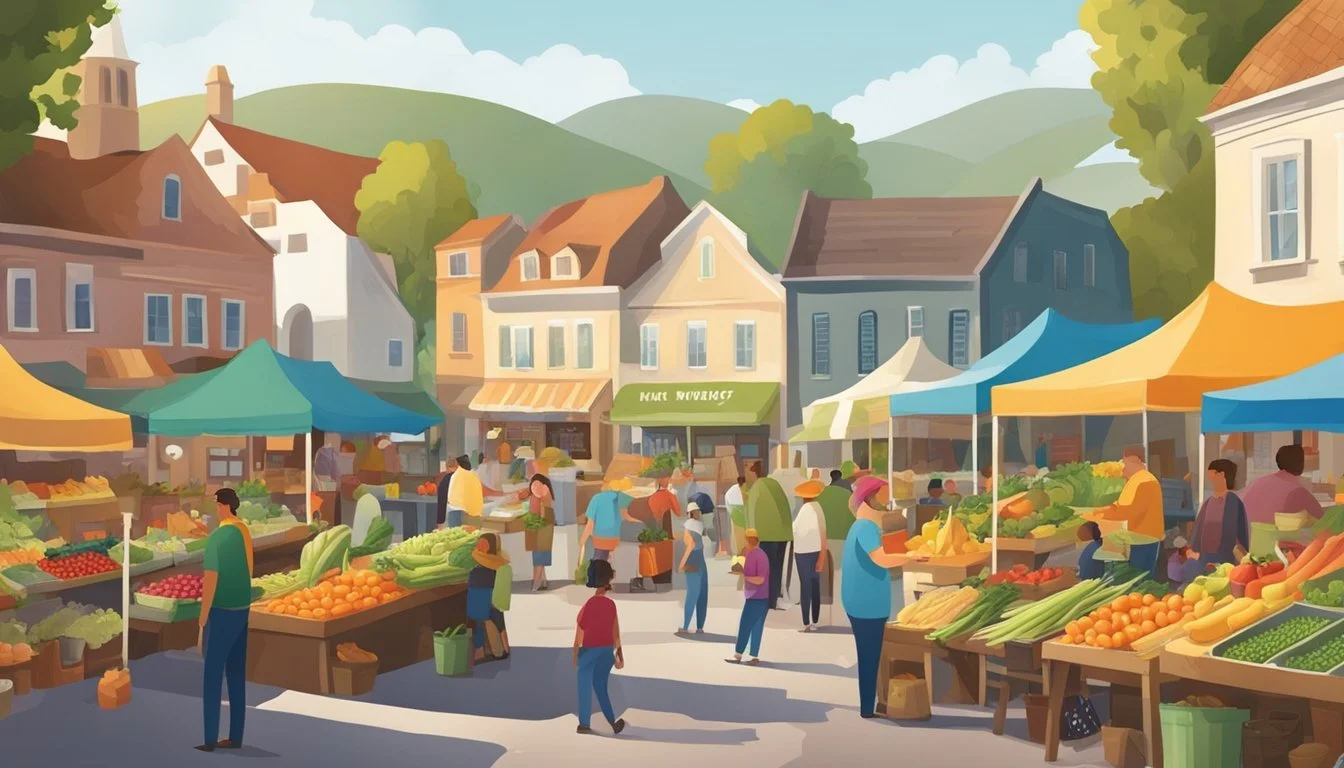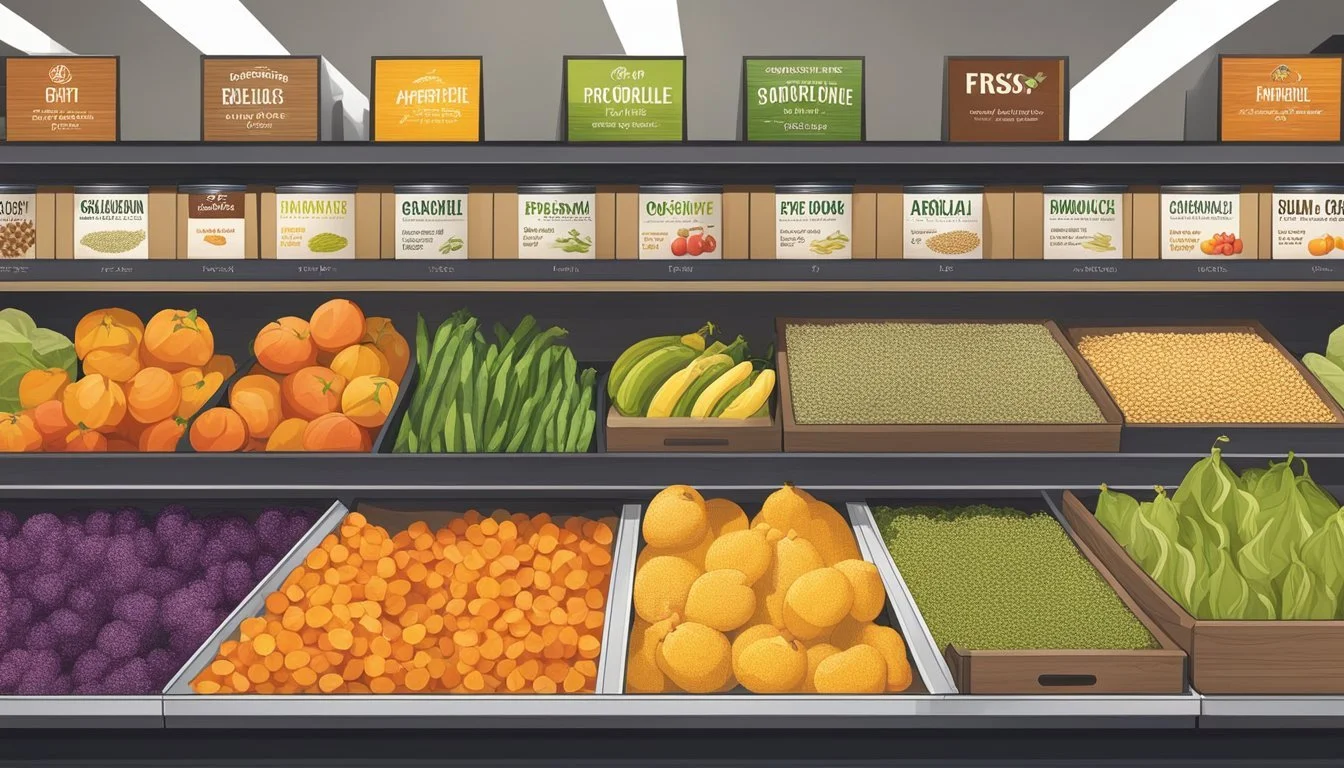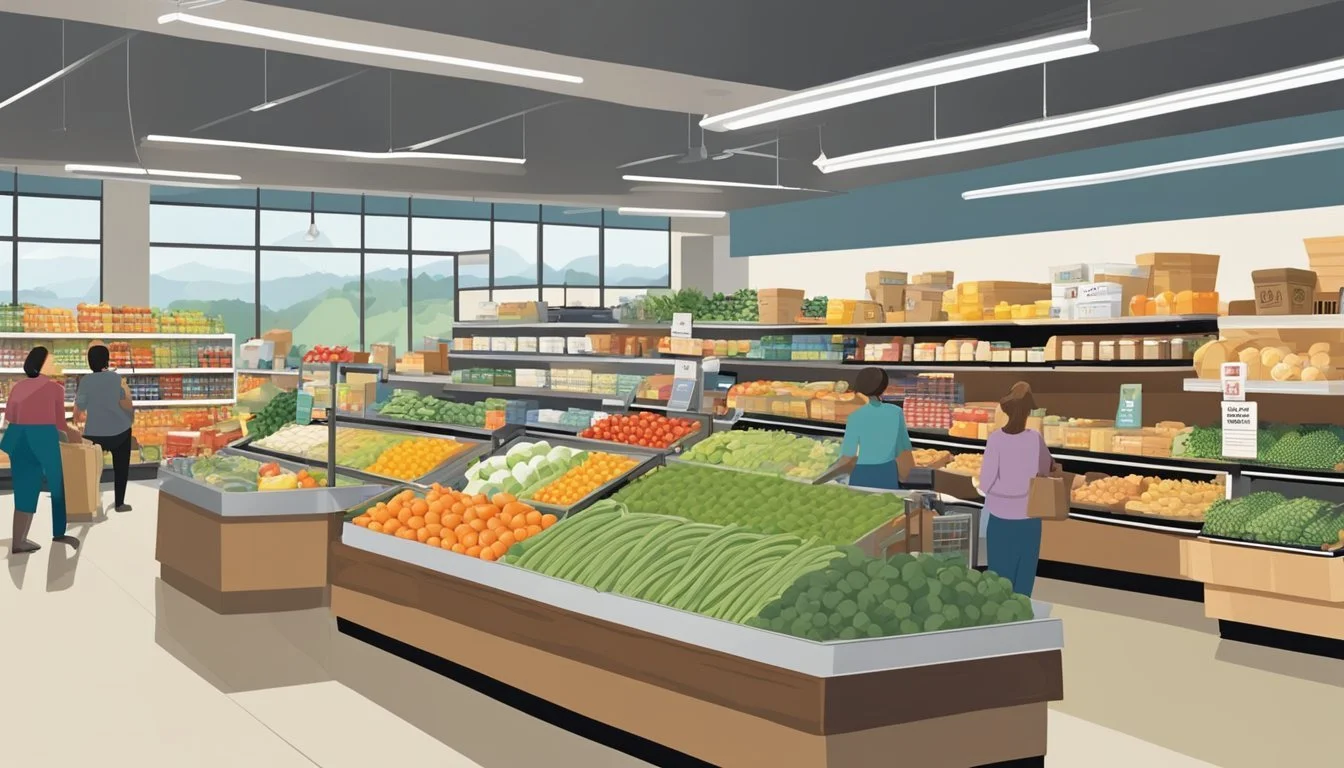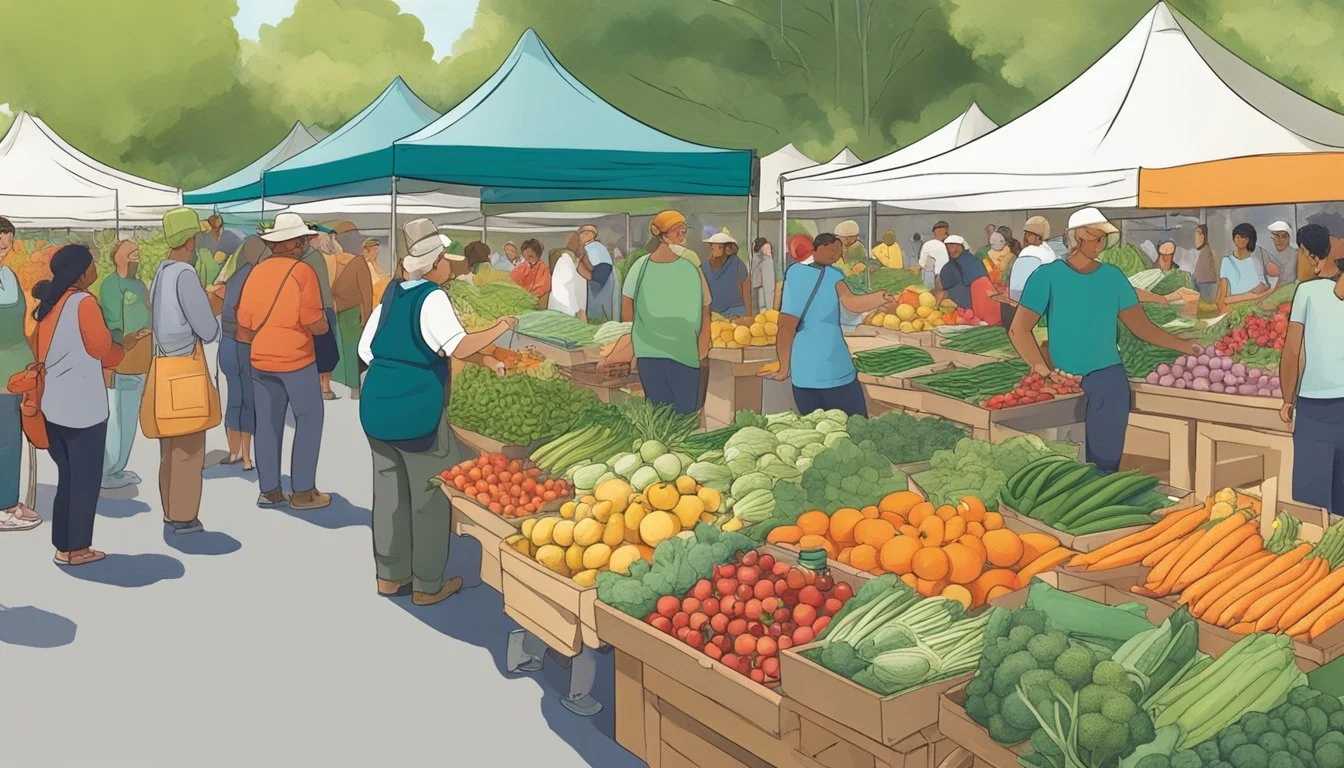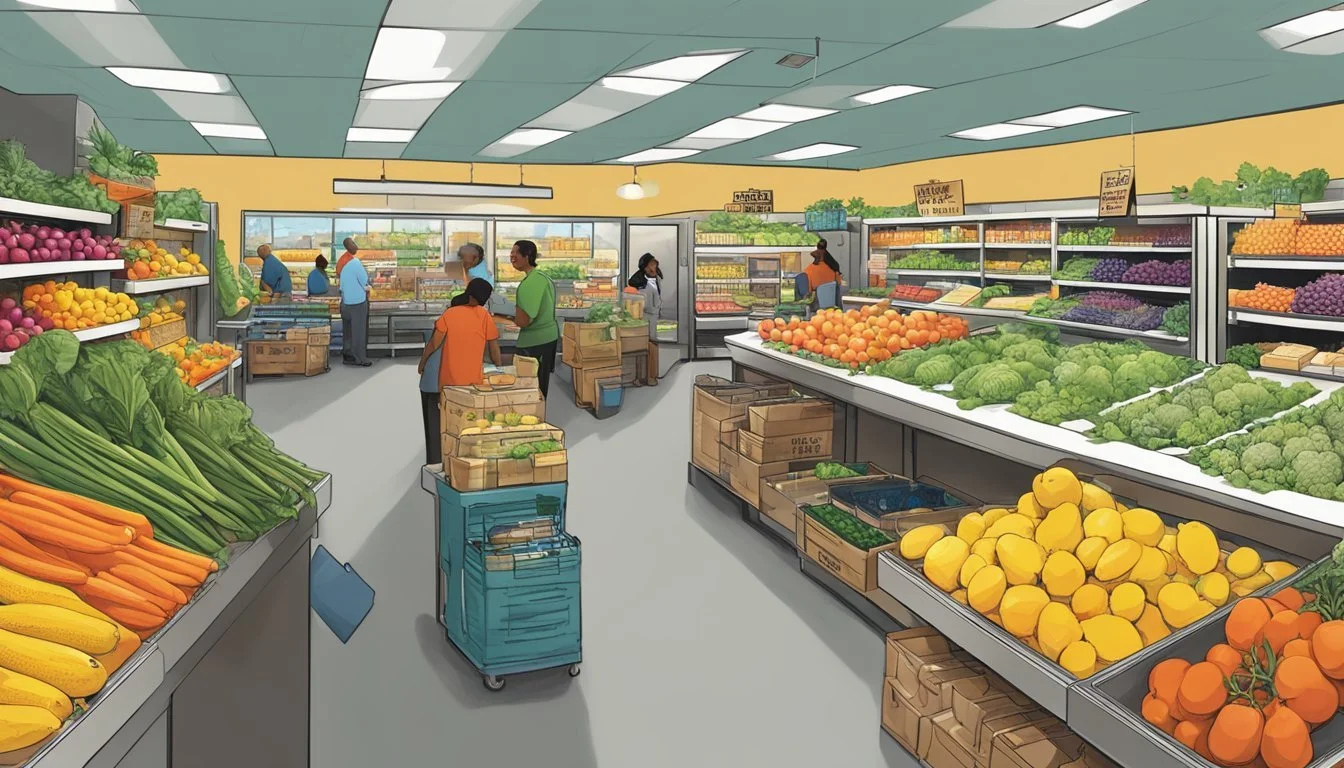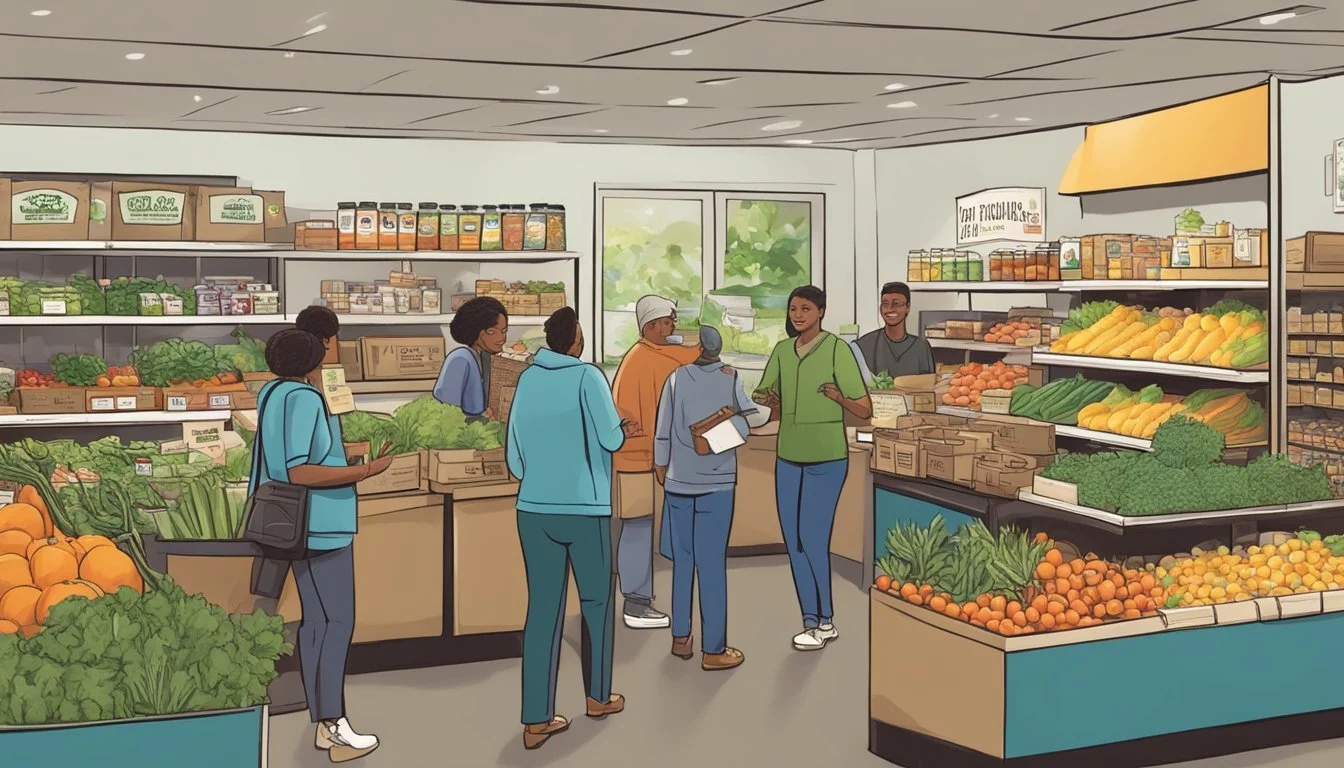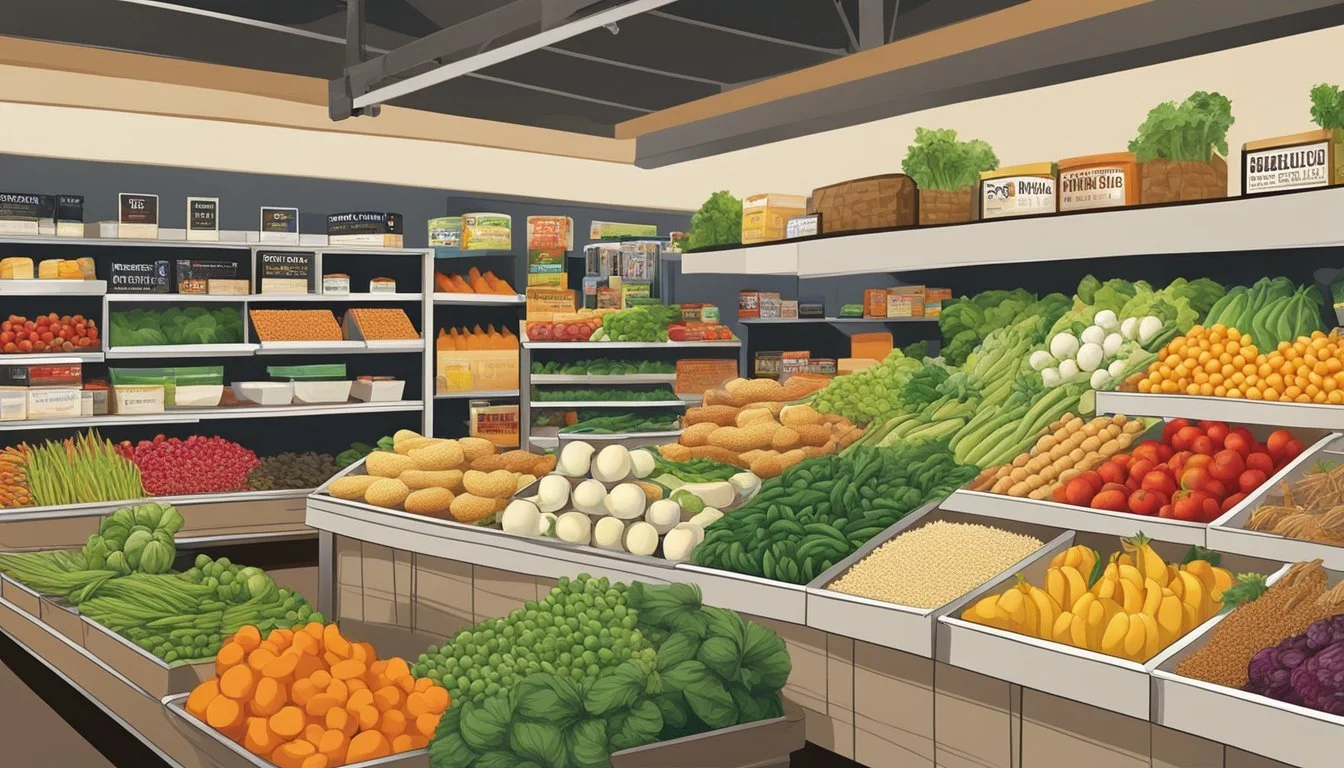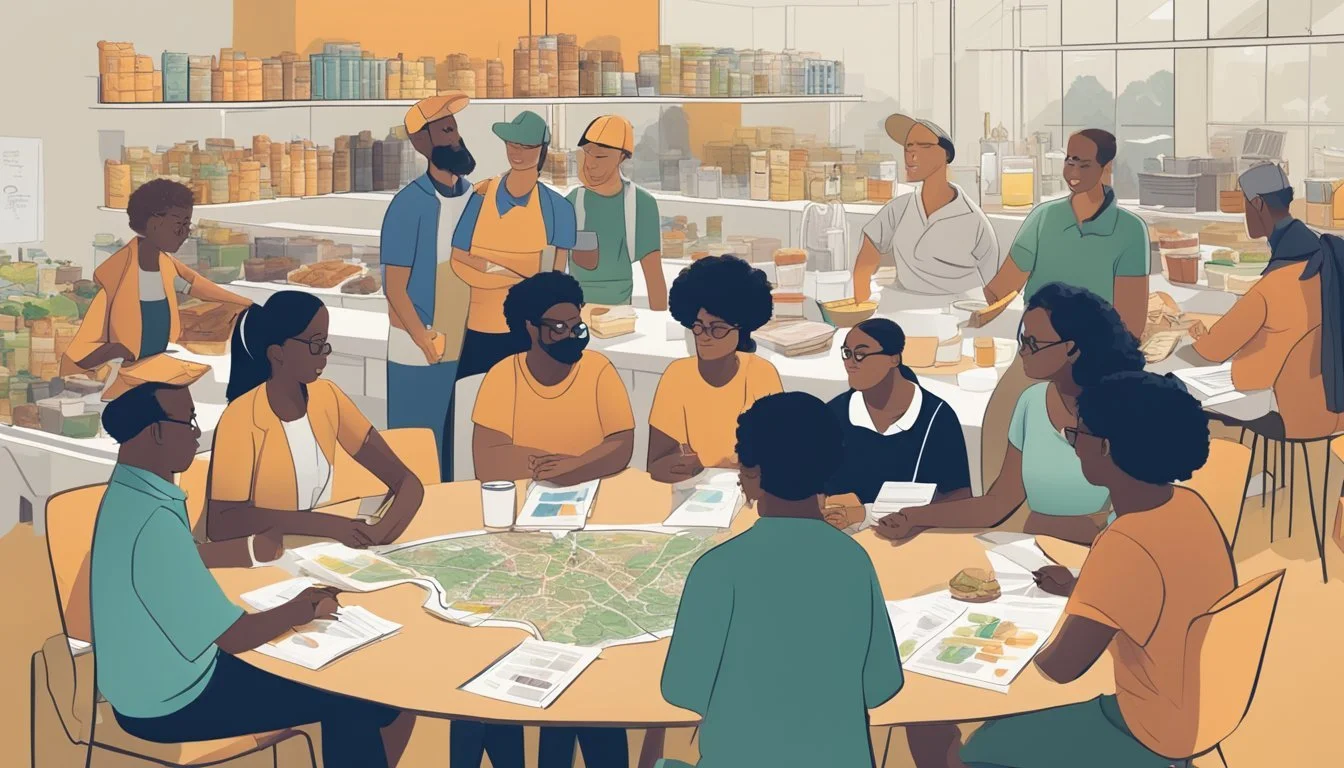Guide to Food Co-Ops in Naperville, IL
Your Local Shopping Resource
Naperville, Illinois, has seen a rising interest in food co-ops, where community and sustainability are at the heart. Food co-ops in this suburban haven offer shoppers an alternative to traditional grocery stores, emphasizing local, organic, and sustainable produce and products. Co-ops aren't just stores; they're democratically run organizations where members have a say in business operations, reflecting a commitment to community well-being and economic responsibility.
Local food co-ops provide an array of high-quality, fresh goods, often sourced directly from local farms and producers, which not only supports the regional economy but also reduces the carbon footprint associated with long-distance food transportation. By joining a co-op in Naperville, members can save on groceries while investing in a model that values nutrition, environment, and producer fairness.
Food cooperatives like Fresh From The Farm Co-op in nearby Lemont offer organic, farm-sourced raw dairy, meats, and produce, promoting a direct connection between Naperville residents and their food sources. Moreover, initiatives like FarmFED Cooperative work towards establishing local food processing facilities, further supporting the local food ecosystem. With a focus on owner participation and a dedication to improving the community, these food co-ops are pivotal in fostering a sustainable food culture in Naperville.
Understanding Food Co-Ops
Food Co-Ops in Naperville, IL, provide an alternative for residents who seek food that's local, sustainable, and community-oriented. These cooperatives operate on a business model driven by member needs and governed by democratic processes.
What is a Food Co-Op?
A food cooperative or food co-op is a grocery organization owned and operated by its members. It aims to meet their food needs and typically focuses on procuring local, organic, and natural food choices. Through cooperative business model, each member has a say in the business decisions, and profits are often redistributed back into the community or toward improvements for the co-op.
History and Philosophy of Co-Ops
The history of co-ops traces back to the Rochdale Pioneers in England, 1844, who established the seven principles that continue to guide today's food co-ops. These principles include democratic member control and member economic participation, fostering both a sense of community and a commitment to equitable economic practices. In Naperville, food co-ops are built on a philosophy that values local communities and sustainable living.
How Food Co-Ops Differ from Traditional Grocery Stores
Food Co-Ops stand apart from traditional grocery stores in several key ways:
Governance: Co-ops are democratically controlled by members, each having a vote in key decisions.
Economic Model: Members often share in the profits through reduced prices or dividends.
Local Focus: Emphasis on local goods supports area farmers and producers, enhancing the local economy.
Community Engagement: They frequently engage in local community events and activities, contributing to a thriving local food scene.
By focusing on community and cooperative principles, food co-ops like those in Naperville serve as pillars of sustainability and local empowerment.
Benefits of Joining a Food Co-Op
Joining a food co-op in Naperville, IL, provides community members with the opportunity to reap substantial economic, social, and health benefits. These cooperatives are not just stores, but community hubs where members can influence local trade, ensuring that it benefits both the local economy and the individual member’s wellbeing.
Economic and Social Impact
A food co-op is a community-owned and governed enterprise, with each owner having an equal vote in the decision-making process. Profits earned by the co-op are often reinvested into the local community, thereby fostering a robust local economy. The cooperative model sustains local jobs and often supports local producers, hence amplifying the economic impact within Naperville. Through patronage refunds and potential discounts on purchases, owners directly partake in the financial health of the co-op.
Invests in local economy
Members vote on important decisions
Patronage refunds to the owners
Health and Quality of Produce
The focus on offering fresh, all-natural, and organic produce is a cornerstone of many food co-ops. By prioritizing high-quality goods, these establishments provide a source of healthy food options for the community. Additionally, the presence of organic options highlights a commitment to environmental stewardship and supports those who prefer products free from certain chemicals and pesticides.
Prioritizes fresh and organic produce
Commits to healthy, all-natural food options
Democratic Member Control and Ownership
Distinctive in its structure, a food co-op operates on democratic member control, ensuring that each member has a say in how the cooperative is run. This equity in voice leads to a store that truly reflects the desires and needs of its owners. As a result, it fosters a sense of ownership, as cooperative members are investing not just money, but also their values and trust into the enterprise.
Ensures equal voice and vote for all members
Reflects a true sense of community-owned and managed business
Membership and Ownership
In Naperville, IL, food co-ops offer a unique blend of membership involvement and ownership that fosters a strong community around local produce. By becoming a member-owner, individuals gain access to various benefits, including discounts and patronage dividends, while also upholding certain responsibilities to maintain the cooperative's success.
How to Become a Member
To join a food co-op in Naperville, one must typically purchase a membership share. This is a one-time fee that signifies an individual's ownership stake in the cooperative. The exact amount varies by co-op but is generally set at an accessible level to encourage wide community participation. Unlike traditional grocery stores, members have a say in co-op governance, reflecting the principle that ownership is shared and democratic.
Process of Membership Enrollment:
Submit a membership application to the co-op.
Pay the membership fee, securing a share of the cooperative.
Member Responsibilities & Benefits
As a member-owner of a food co-op, individuals are expected to contribute to the cooperative's operations. This may involve a minimum number of volunteer hours or participation in important votes. By fulfilling these roles, they ensure the co-op stays true to its mission of providing access to local and sustainably sourced food.
Key Responsibilities:
Contribute to the cooperative through volunteer hours or other forms of involvement.
Participate in democratic processes, such as elections and policy-making.
Benefits of Membership:
Discounts: Members often receive a percentage off their purchases as a tangible benefit.
Patronage Dividends: Depending on the success of the cooperative, members may receive dividends, which are shares of the profits based on their level of patronage.
By engaging in the cooperative's operations and sharing in its ownership, members help sustain a valuable resource for local produce and community engagement in Naperville.
Local and Organic Produce
In Naperville, IL, consumers have privileged access to a range of local and organic produce, which is sustainably sourced from regional farmers and local farms. These products not only support the community but also have a positive environmental impact due to reduced transportation emissions.
Sourcing Policies
Local food co-ops and grocery stores in Naperville place a strong emphasis on partnering with local farmers to source organically grown produce. Stores like Naperville Fresh provide a connection to the source of the food, ensuring that produce is not only local but also cultivated using organic agriculture methods. Farmers like those at Green Earth Harvest cultivate on protected land, thus contributing to biodiversity and soil health.
Local Sources: Farms such as McDonald Farm and Broad Branch Farm.
Organic Practices: Commitment to no synthetic pesticides or fertilizers.
Seasonality: Emphasis on seasonal produce to ensure freshness and reduce transportation.
Benefits of Local and Organic
Shopping for local and organic groceries in Naperville presents several benefits:
Nutritional Value: Organically grown food is typically fresher and may contain more nutrients.
Environmental Impact: Local sourcing reduces carbon footprint due to shorter transportation distances.
Community Support: Buying from local producers sustains the local economy and supports regional farmers.
Food Transparency: Local co-ops often provide detailed information about where and how the food was grown.
By choosing local and organic options, consumers contribute to a sustainable food system that respects the environment and bolsters the local community.
Products and Offerings
Naperville's food co-ops are known for their impressive array of groceries, often prioritizing organic and locally-sourced items. These cooperatives offer a spectrum of products that cater to the discerning consumer seeking freshness and quality.
Variety of Groceries Available
Food co-ops in Naperville provide a diverse selection of groceries to accommodate the needs of their members and customers. Patrons can expect to find:
Produce: A wide range of fresh fruits and vegetables, including organic options.
Meats: High-quality, often locally sourced meats, available to shoppers who value responsible sourcing.
Herbs: Both culinary and medicinal herbs, emphasizing organic and fresh picks for heightened flavor and potency.
Grocery Items: A comprehensive selection, from pantry staples to unique culinary ingredients, often focusing on organic and high-quality selections.
Highlight on Local Items
Naperville's food co-ops proudly feature local products, which supports not just the community's economy but also the move towards sustainability. This focus on local offerings ensures that consumers have access to:
Freshness: Local produce and products that often go from farm to co-op shelf in a shorter period, maintaining optimum freshness.
Local Products: A rotation of seasonal goods that showcase the best of what the region has to offer at various times of the year.
In summary, these co-ops are not just a source of groceries—they are a gateway to experiencing the highest quality of fresh, organic, and local offerings that Naperville's farmers and producers have to offer.
Community Engagement
In Naperville, local food co-ops play a pivotal role in fostering community engagement through partnerships and educational outreach.
Co-Ops Supporting Local Organizations
The co-ops in Naperville are integral to community support systems by establishing strong connections with local organizations such as food pantries and nonprofits. MooGrass Farms, for instance, emphasizes the importance of hormone and antibiotic-free foods and aligns with organizations advocating for healthier community food options. Moreover, many food co-ops collaborate with local schools, providing them with fresh produce and thereby supporting educational institutions in teaching children about nutrition and the value of locally sourced food.
Educational Initiatives and Workshops
Food co-ops in Naperville actively engage in educational initiatives, enabling community members to learn about sustainable practices and the benefits of participating in a co-op. Workshops organized by these co-ops range from food preparation to understanding the economics of food co-operatives. These serve not only as a means to educate but also to bring the community together around shared values and goals. Educational efforts extend beyond the walls of the co-op, with initiatives designed to reach out to the broader local community, including:
partnerships with schools for student field trips and educational programs,
workshops open to the public on topics such as farm-to-table cooking and budget-friendly shopping.
Savings and Financial Aspects
Food co-operatives in Naperville, IL, offer financial benefits that traditional grocery stores often can't match. They allow members to save money and earn patronage dividends based on the co-op's profits and their level of interaction.
How to Save Money Shopping at a Co-Op
Members can save money at a food co-op by taking advantage of member-only discounts and bulk purchasing opportunities. The specific co-op in Naperville may offer Link Match programs, which double the value of SNAP benefits when used to purchase fresh produce. Additionally, there might be seasonal discounts or incentives for volunteering at the co-op.
Bulk purchase discounts: Buying in larger quantities often reduces the per-unit cost.
Member specials: Exclusive pricing on certain products for members.
Volunteer discounts: Reduced prices as a reward for volunteering time to the co-op operations.
Understanding Patronage Dividends
Patronage dividends represent a share of the profits that a food co-op makes, which it distributes among its members. The amount received is typically proportional to how much each member spent at the co-op during the year.
Equity ownership: Members hold equity in the co-op and may be entitled to dividends.
Dividend payouts: Profit-sharing mechanisms vary but are often paid annually based on spending and the co-op’s profitability.
Finding Naperville Food Co-Ops
For residents of Naperville, IL seeking fresh, high-quality groceries, local food co-ops offer a community-oriented alternative to traditional grocery stores. Co-ops typically value product quality, member control, and often support local producers.
Directory of Local Co-Ops
Local co-ops in Naperville are diverse, including retail stores and buying clubs. Two prominent examples include:
MooGrass Farms
Type: Private Farm Club/Co-Op
Focus: 100% grass-fed, hormone, and antibiotic-free products.
Green Tomato Grocery Cooperative
Type: Grocery Cooperative
Specialty: Supports local communities and provides member education.
Map and Contact Information
For individuals wishing to visit or inquire further about the food co-ops in Naperville, maps and contact information are essential. Below are details to aid in your search:
Co-Op Name Location Contact Information MooGrass Farms Wheaton, IL Contact through LocalHarvest for details Green Tomato Grocery Cooperative Naperville, IL Available upon direct inquiry
Residents can use local directories or online resources like LocalHarvest to find more detailed maps and additional contact details for each co-op.
Governance and Management
Food co-ops in Naperville, such as those in the broader co-operative sector, function under a governance and management structure that places emphasis on community and member involvement.
Role of Members and Board of Directors
Members of a food co-op are central to its governance. They hold control through their right to vote on key issues and in the election of the Board of Directors. The board, typically elected by the co-op owners, the members, embodies a fiduciary responsibility to the co-op. This includes ensuring that the co-op adheres to its mission, is financially sound, and operates in the best interest of its members.
Weavers Way Co-op's Board is an example, where members run for an open Director position, emphasizing the co-op's democratic structure.
Board Responsibilities:
Oversight of co-op policies
Hiring and review of senior management
Financial oversight
Strategic planning
Members' participation in policy making is encouraged, fostering a collective ethos.
Participation in Policy Making
In a food co-op, every member can participate in policy formulation, creating a robust mechanism for self-governance. Co-op retailers rely on policies set by their members and Board of Directors to navigate the complexities of food distribution, maintain ethical standards, and respond to economic and social changes.
Policy Participation Mechanisms:
Member meetings
Surveys and feedback forms
Committees and working groups
Food co-ops prioritize transparent communication to ensure that the members' voices are integral to the management's decision-making process.
Special Programs and Initiatives
This section provides an overview of the community support and sustainability efforts of food co-ops in Naperville, IL, focusing on the impact they have on local residents and the environment.
Community Support Programs
Naperville's food co-ops and food assistance organizations are deeply involved in community support programs. Loaves & Fishes, for example, offers extensive food distribution services to vulnerable populations in the area, such as military families, seniors, and those facing hardships. They operate with a belief that food is a right, not a privilege, and maintain an Emergency Food Program, with eligibility guidelines ensuring assistance is directed to those who need it most.
Food co-ops, such as the envisioned community-owned co-ops, work in concert with local farms to provide free food to individuals and families experiencing food insecurity. These co-ops often rely on donated goods from community members and businesses, creating a common ground for collective action against hunger.
Sustainability Efforts
The sustainability efforts of Naperville food co-ops involve creating a low environmental impact while promoting local agriculture. These initiatives tend to have partnerships with local farms, facilitating a farm-to-table model that reduces transportation emissions and supports the local economy. Emphasis is placed on organic and sustainable farming practices, which contribute to the overall wellbeing of both people and the planet.
Organizations like national co+op grocers are instrumental in bringing together food co-ops to support these sustainability efforts. By pooling resources and sharing best practices, these co-ops enhance their collective ability to offer environmentally friendly products and reduce waste through initiatives like bulk buying and community educational programs.
Support and Resources for Entrepreneurs
Entrepreneurs in the Naperville area interested in the food cooperative sector have access to a variety of support networks and resources aimed at fostering small business growth and fair trade practices.
Co-Ops and Small Business Growth
Local entrepreneurs looking to start or expand a cooperative business can find numerous support resources. The University of Wisconsin Center for Cooperatives has a comprehensive Cooperative Resource Ecosystem map, which provides information on regional cooperative development organizations geared towards small business owners. This resource is vital for Naperville entrepreneurs as it connects them to national and regional organizations that can assist with cooperative business strategies.
Guidance is also available through the Neighboring Food Co-op Association (NFCA), which offers a detailed Guide to Starting a Food Co-op. This guide is particularly beneficial for small business owners interested in tapping into the cooperative market and seeking information on operational fundamentals, financial planning, and community engagement.
Fair Trade and Local Producer Partnerships
Fair trade certification plays a crucial role in supporting producers by ensuring ethical practices and sustainability. Entrepreneurs in Naperville can partner with local producers and growers who already engage in fair trade practices, creating a mutually supportive network that enhances product authenticity and consumer trust.
These partnerships can be vital in creating a robust local supply chain. Establishing connections with local producers not only supports the regional economy but also aligns with consumer demand for locally-sourced and sustainably-produced food items. Food co-ops can serve as a marketplace for these growers, providing a direct channel to consumers interested in supporting the fair trade movement.
Events and Outreach
Naperville's food co-ops and related local organizations foster a robust sense of community through a variety of events and outreach programs. These opportunities not only connect the residents with local food sources but also encourage active community involvement and volunteerism.
Calendar of Events
Local co-ops and markets, such as the Naperville's Farmers Market, typically offer a seasonal calendar that features farm stands, food as medicine events, and culinary festivals. For instance:
Farmers Market: Open every Saturday starting June 1 through October 26 at the 5th Avenue Station front parking lot.
Food Events: Various food-related events are held throughout the year, such as cooking classes and food and wine festivals. Upcoming events include:
Food as Medicine: Scheduled multiple sessions, including one on March 5 at 6:00 PM.
Elements Winter Culinary Food and Wine Festival: Held on February 2 at 6:30 PM.
Volunteer Opportunities and Community Involvement
Organizations such as Loaves & Fishes Community Services actively engage the Naperville and DuPage County community through volunteer programs aimed at hunger relief:
Stamp Out Hunger: An annual event focused on collecting food donations.
Chef Showdown 2024: Engages local chefs in a culinary competition to raise awareness and funds.
Volunteering: Opportunities for community members to contribute to the food pantry services are available throughout the year.
Local food co-ops often rely on volunteers for events, and community members are encouraged to participate and support their initiatives.
Nutrition and Education
Food co-ops in Naperville, IL, emphasize the importance of nutrition by providing access to high-quality, nutritious foods and education. They offer a variety of organic and local produce known for their health benefits and foster learning through educational resources and cooking classes.
Health Benefits of Co-Op Products
Food co-ops typically stock a range of organic products that are free from synthetic pesticides and fertilizers, which many consumers believe contributes to better health. These products may also include local produce, ensuring freshness and supporting the local economy. The co-ops may carry items that are 100% grass-fed, hormone, and antibiotic-free, giving customers some of the best value in terms of food quality and nutritional benefits. MooGrass Farms, mentioned in the search results, is an example of a provider that maintains relationships with farms upholding strict standards for food quality.
Educational Material and Cooking Classes
In addition to offering nutritious food options, Naperville food co-ops often provide educational resources geared towards a healthy lifestyle. These can include nutrition education programs and classes that encourage and educate clients on healthy eating habits. Furthermore, co-ops might feature cooking classes:
Aurora Hub: Offers classes and information on healthy eating lifestyles.
Nutrition Services in Naperville Schools: Previously mentioned, Naperville's school district provides educational services about nutrition, underscoring the importance of a balanced diet from a young age.
Co-ops believe that through knowledge and practical skills, like those acquired in cooking classes, individuals can make informed choices about their food, lead healthier lives, and gain a greater appreciation for the value of high-quality, sustainable food sources.
Partnerships and Collaboration
Food co-ops in Naperville, IL, are increasingly interwoven with the community through strategic alliances. These collaborations strengthen the local food system, ensuring a sustainable supply of healthy food.
Collaborations with Local Farms
Local farms are the backbone of food co-ops, providing members with fresh, in-season produce. These partnerships allow co-ops to support local agriculture and economy by:
Direct purchasing: Co-ops often buy directly from farmers, providing them with stable revenue and an outlet for their products.
Community Supported Agriculture (CSA): Many co-ops facilitate CSA programs, wherein consumers buy shares of a farm's harvest in advance.
Relationship with National Co-Op Organizations
National Co+op Grocers (NCG) plays a crucial role in amplifying the influence of food co-ops. The partnerships between NCG and local co-ops include:
National secondary distribution agreements: These agreements, like the one KeHE Distributors established with NCG, can offer co-ops better pricing and access to a vast range of products.
Support for WIC programs: National organizations may assist local co-ops in navigating the certification process to accept WIC (Women, Infants, and Children) benefits, expanding access to nutritious food for more community members.
Programs for Low-Income Individuals
Naperville, IL provides a robust support system for low-income individuals seeking access to food resources. Two key components of this system are ensuring the availability of healthy foods and offering financial assistance to enhance food security.
Access to Healthy Foods
Low-income residents in Naperville can find support through various food assistance programs. Loaves & Fishes is a notable entity that emphasizes healthful food options for both immediate and long-term well-being of children and adults. They operate in conjunction with family farms and other food sources to provide nutritious food choices.
Food pantries play a critical role in this ecosystem. Naperville's network of food pantries offers an essential lifeline, ensuring access to healthy foods is uninterrupted for those in need.
Discounts and Financial Assistance
Financial assistance is available to help ease the burden of food expenses. Green Harvest Food Pantry extends its support not just through food distribution but also by offering personal care items and job skills and training to support overall self-sufficiency. To augment this, Link Match programs increase the value of SNAP benefits when used to buy fresh produce at local participating farmers markets, making healthier food choices more affordable.
Discounts through food assistance programs are important for helping low-income families stretch their food budgets further. By taking advantage of these discounts, eligible individuals can ensure that they have access to both sufficient and nutritious food.


